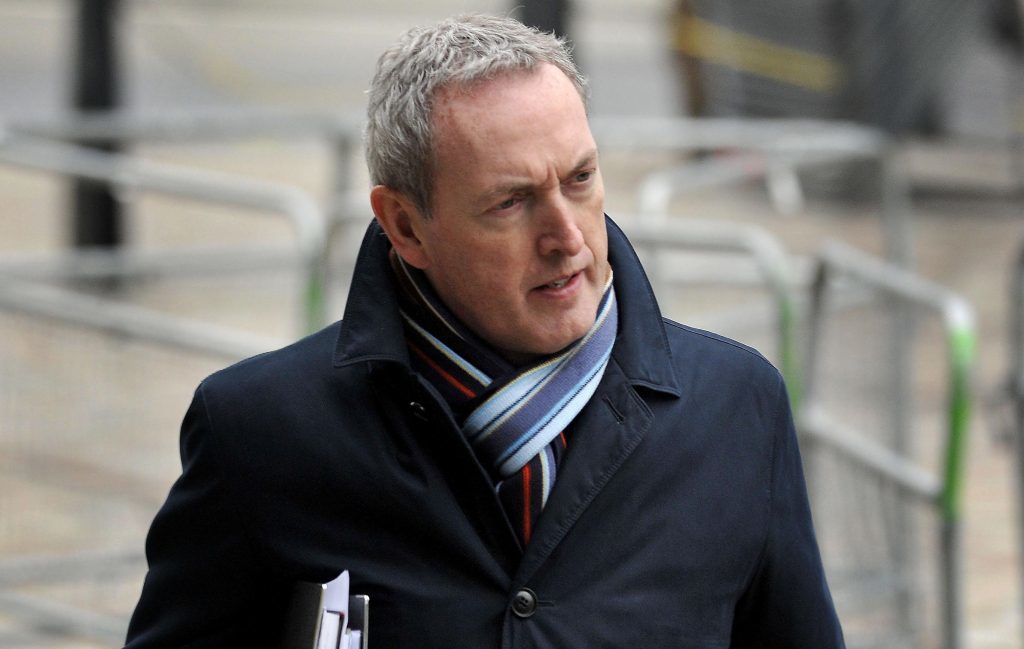
A Labour former Cabinet minister has warned of the “cataclysmic consequence” of leaving the EU without having nuclear safeguarding arrangements in place.
Lord Hutton of Furness said it would be a “terrible event” and argued it was for ministers to ensure the UK did not “walk off the edge of this cliff”.
The peer, who is chairman of the Nuclear Industry Association, stressed the need for an agreement to be reached with Europe’s nuclear regulator to cover the two-year post-Brexit transition period.
He also saw no reason why this arrangement could not be extended “in perpetuity”, giving the industry continuity and certainty.
Lord Hutton made his comments as peers debated the decision to leave Euratom as part of the divorce proceedings, during committee stage of the Nuclear Safeguards Bill.
He told peers: “The industry wants to avoid the cataclysmic consequence of exiting the European Union in March 2019 without an effective arrangement in place that will oversee nuclear safeguards in the UK.
“I think it’s impossible to exaggerate the significance of getting to that point.
“If that’s where we get to and there is no arrangement in place with Euratom, at that point I think it’s highly unlikely that we will have a compliant safeguarding regime applying to the United Kingdom civil nuclear industry and that would be really a terrible event.”
Lord Hutton understood it was the Government’s aim to reach an association agreement with Euratom to cover the two-year transition period.
He said: “That I believe is absolutely essential because we will not be in a position to operate an independent UK arrangement, I think, that meets international standards by March 2019. I think that’s highly improbable.”
He added: “If we can reach an agreement for a transitional period, I don’t understand why that transitional arrangement can’t continue for longer, specifically in this regard in relation to the civil nuclear industry.”
While he felt the UK was “doing a terrible thing” in leaving the EU, he said: “I am trying to speak specifically about the consequences for the civil nuclear industry.
“If ministers are prepared to be pragmatic … there is no reason at all why a two-year transitional agreement … can’t be extended in perpetuity.
“That by far and away is the best set of circumstances for us to arrive at.
“It offers the one thing industry wants which is continuity and certainty.”
Lord Hutton went on: “It is absolutely the responsibility of ministers now to make sure that we don’t walk off the edge of this cliff.
“There’s a perfectly straightforward path in front of them. It’s about pragmatism.”
Independent crossbencher Lord Carlile of Berriew said: “We have at the moment a very satisfactory set of standards.
“What we are offered as an alternative is a set of good intentions. Now we know about good intentions, they don’t always lead to good standards or any standards being adopted at all.”
He said there was “real anxiety about the standards this country is going to have in the future and whether we will be recognised as coming up to world standards in relation to nuclear safeguards”.
Independent crossbencher Lord Warner, a former Labour minister, said the move to leave Euratom was “a rash and ill-considered action by the Government”.
He warned he was not prepared to be “fobbed off” with ministerial assurances on progress and “that it will all be all right on the night”.
For Labour, Lord Hunt of Kings Heath said it was a mistake to withdraw from Euratom, and warned: “The very integrity of this crucial industry is at stake.”
Lord Hunt said he had no confidence in the Government being able to negotiate a deal with Euratom and branded its Brexit policy as “utter chaos and disagreement”.
Business, energy and industrial strategy minister Lord Henley said the Government was determined to have a “constructive and collaborative” relationship with Euratom despite withdrawal from it and the EU.
He said an appropriate safeguards regime would be in place by next year and promised a close and effective continuing relationship with Euratom after withdrawal.
Lord Henley said there was no such thing as associate membership of Euratom, as some peers were demanding, and warned there could be no question of attempting to prolong membership of Euratom, which was uniquely linked to EU membership.
Peers withdrew a series of amendments to the legislation but threatened to return to the issue during the Bill’s later report stage.